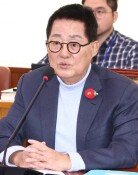U.S. VP to send a message ‘era of strategic patience is over’
U.S. VP to send a message ‘era of strategic patience is over’
Posted February. 05, 2018 08:03,
Updated February. 05, 2018 14:26
In a telephone conversation with U.S. President Donald Trump, South Korean President Moon Jae-in expressed hope that “the improving inter-Korean relations will help build peace on the Korean Peninsula” and “U.S. Vice President Mike Pence’s visit to South Korea will be a milestone in the process of building peace.” Moon’s remarks are interpreted as indirectly suggesting the U.S. vice president hold a meeting with North Korean high-ranking officials while he is attending the opening ceremony of the Winter Olympic games in Pyeongchang. Trump reportedly avoided giving a direct answer. However, Pence said that he would send a simple message that “the era of U.S. strategic patience is over” with North Korea.
As a matter of fact, Moon is hoping the inter-Korean reconciliatory mood prompted by the PyeongChang Winter Olympics will be used as a turning point for opening dialogues between North Korea and the United States. He is also well aware, if he misses this chance, the geopolitical situation will get worse after the Olympic Games. In a bid to set stage for North Korea-U.S. talks, the Moon administration has explicitly expressed hopes that the North sends a delegation led by an official of the highest possible ranking including the regime’s de facto No. 2, Choe Ryong Hae, vice chairman of the Korean Workers’ Party. “It’s better to have higher ranking North Korea officials, possibly the second or third most powerful figures,” said an official at the South Korean presidential office Cheong Wa Dae on Sunday.
Unfortunately, given the current atmosphere in Washington, these expectations are unlikely to be realized. The Trump administration is intensifying the “maximum pressure” against North Korea, particularly criticizing its deplorable human rights situation, while seriously considering military options. Pence, who expressed grave concerns that North Korean leader Kim Jong Un will “hijack” the Olympics for its own propaganda, once again emphasized that “all options are on the table” for responding to threats from North Korea. In the meantime, the U.S. Defense Department revealed its latest Nuclear Posture Review (NPR), where it warns that any North Korean attack against the United States and its allies will result in the end of its regime. At this rate, Pence will not even exchange greetings with North Korean officials even if they encounter in Pyeongchang.
For North Korea-U.S. talks to be held, there must be a significant change in the North Korean leader’s behavior, but there are no signs of that. During the inter-Korean talks, Pyongyang made it impossible for Seoul to say a word for its denuclearization. They did not give any pledge to discuss denuclearization issue, either. To be sure, it is possible that there may be negotiations going on behind the curtains between the two Koreas or between North Korea and the United States for a diplomatic breakthrough. But if not, a high-level bilateral meeting between the two nations in PyeongChang would be a false dawn. Furthermore, the Moon administration should take note that such unilateral expectation will only show the difference in understanding between South Korea and the United States and lead to disagreement on the alliance’s North Korea policy.







